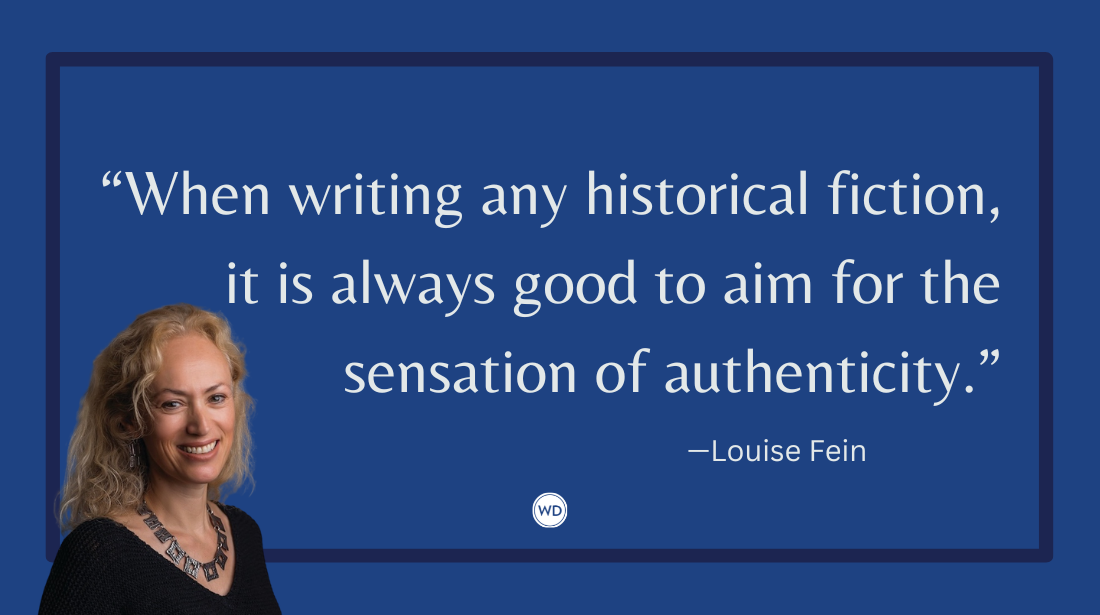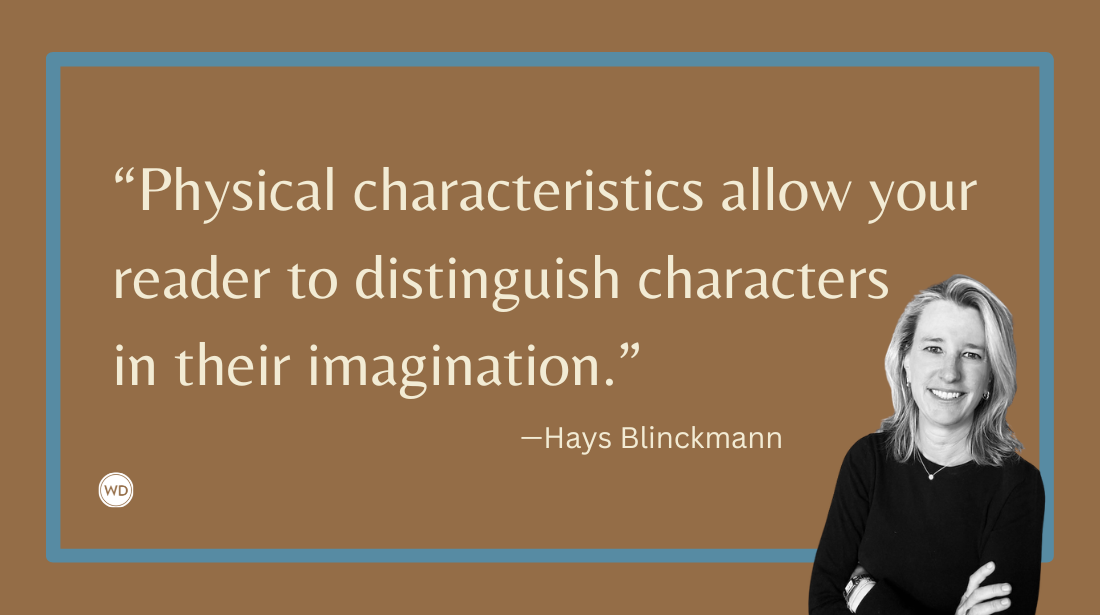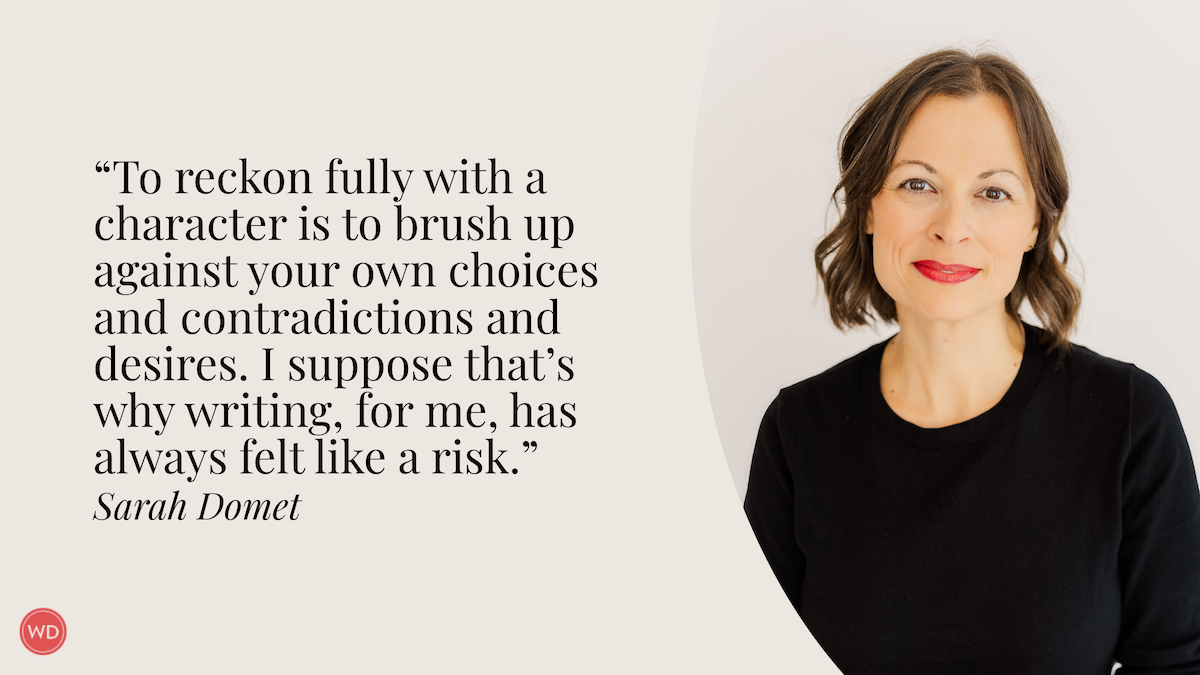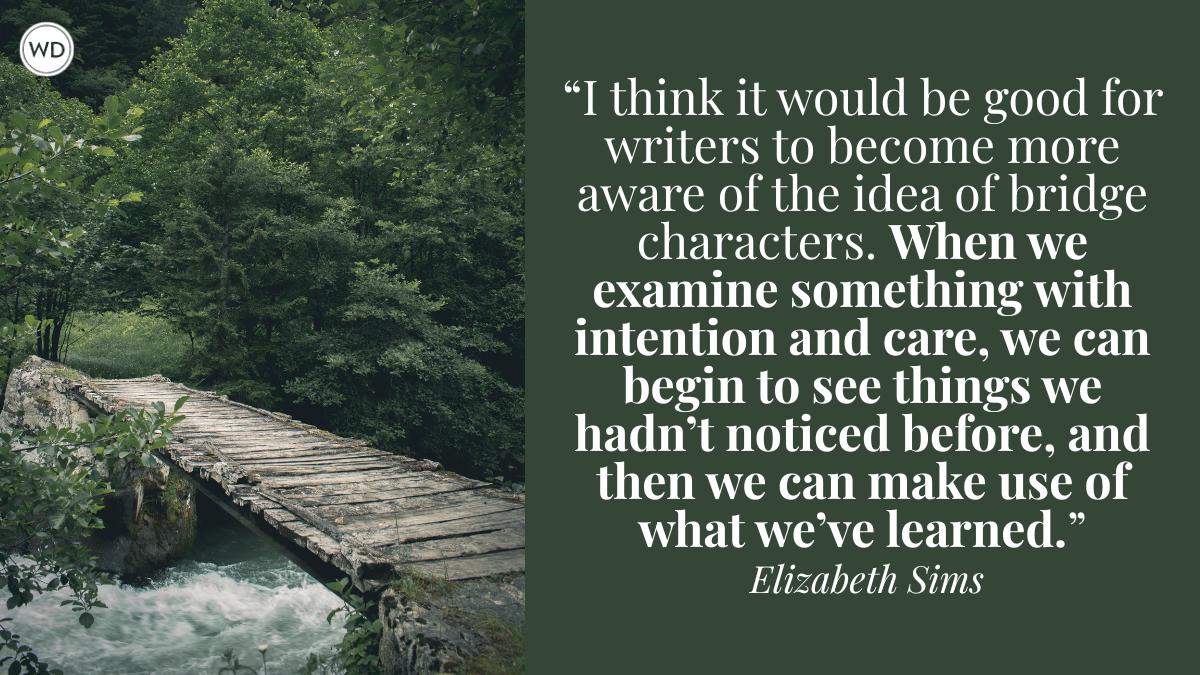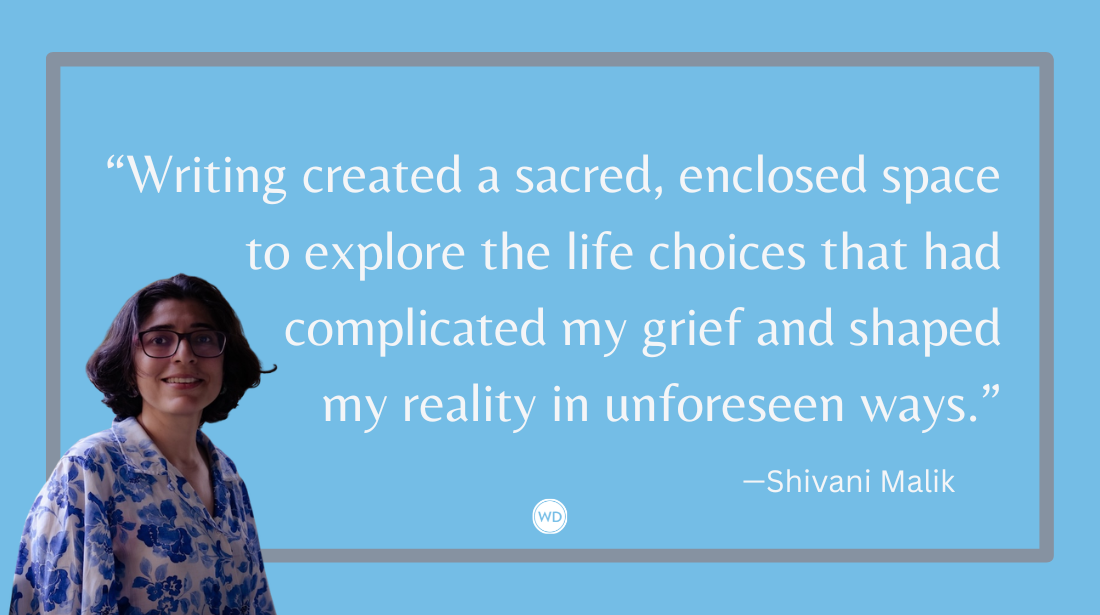Based on a True Story: 4 Advantages to Fictionalizing the Truth
Should you write a memoir, or write a novel “based on a true story”? Here, Joan Jackson offers four advantages to fictionlizing the truth.
My brother had his first psychotic break at the age of twenty. In and out of institutions most of his adult life, the only place he felt at peace was at home in Silver Lake, Ohio, with our parents. After both our mother and father suddenly passed away, my youngest brother and I hoped to preserve his sense of relative stability by finding someone reliable to live with him in the home. Our search turned up only one contender: my sister-in-law, who was desperate for a new place to live. In the months that followed, the two virtual strangers were thrown together out of necessity, to navigate tension and crisis—and ultimately forged a fragile harmony.
In my new novel, Just In Time: Based on a True Story, I fictionalized this true story with the goal of telling a vivid account of the day-to-day rollercoaster of life with a schizophrenic.
My decision to write a novel versus a memoir was based on four advantages I saw in fiction over truth:
1. Author Freedom
Simply stated, “Based on a True Story,” allowed me the freedom to rewrite history, to reach beyond the actual events and people I know. When I fictionalized what I perceived as true, I became so absorbed in the characters that the characters had room to take over, and moved the story forward without the interference of any futile attempts on my part to recall the facts of what was said and done and when. While the storytelling was fact-based, I was able to adapt some of the features of fiction: creating narrative persona and scenes, presenting interesting characters that are close to the purposes of memoir without the restrictions.
2. Imagination and Creativity
My imagination expanded to create new characters and events, taken from people I’ve met and my interactions with them, while maintaining the essence of the true story and my strong emotional attachments. For example, in the book, Sylvia (loosely based on me) interviews several possible caregivers to live with Steve (my brother’s character) and I was able to infuse (my own) those experiences into the scene while inventing new characters. Fictionalizing allows the writer to make discoveries. Without planning to write about Trevor’s drug addiction (a character based on my son), I came to the realization that it overlapped with mental illness—they’re both lifelong diseases—so I built out the scenes with Sylvia (his mother) and Trevor, because I felt the same despair and hopelessness about his condition. I find this exhilarating because a story can unfold in unexpected ways.
3. POV
Publishers will tell you that when telling a story based on true events, writing it as a memoir sells better than fiction. Perhaps because memoirs appear to be more authentic than novels. And authenticity has grown in the industry. So I stumbled when asked to determine the genre of Just in Time. Memoir was encouraged by my publisher, yet memoir is written in first person from the author’s point of view. My manuscript had several POVs, which I vehemently wanted to maintain. Especially the POV of my brother, the protagonist. It was the heart of the story to be in his head throughout much of the novel. And I’d fictionalized much of his story. So, I took some time to research various genre descriptions.
I responded to John McPhee, who writes for The New Yorker, and is an authority on narrative and creative nonfiction. He even teaches a college course named Creative Nonfiction for an entire semester. In his article, “Omission,” in The New Yorker, September 14, 2015, he refers to the distinction between the two genres:
Narrative: “Always it is a narrative told about someone by the person sitting in the passenger seat right next to him. That is what makes it narrative nonfiction.” (I wasn’t sitting next to my brother—I live two thousand miles away.)
“Creative nonfiction is not making something up but making the most of what you have.” That seemed to most closely fit my work, but wasn’t what my publisher could use (my choice was between memoir or novel).
In the end, I chose “Novel: Based on a True Story,” which satisfied the parameters most accurately and gives the book a seal of authenticity. Many readers will presume it’s all true which can be awkward, particularly if a family member recognizes himself/herself in a character. Just because names are changed and dialogue/scenes are mostly fictional, doesn’t prevent recognition and hurt feelings. A probability I had to accept, knowing of many well-known novelists who’ve offended their hometowns, its residents, and/or family members. (John Updike comes to mind.)
4. Truth Is Subjective
Truth really is all perception. As Harry Chapin, 1970’s singer-songwriter, best known for “Cat’s in the Cradle,” wisely said, “There are three sides to every story: yours, mine, and the truth.”
Somerset Maugham, one of my favorite classic writers, said in an interview when asked if what he wrote was true, he answered with a chuckle, “I often can’t recall if what I wrote happened or not.” After some time has passed, having written many scenes in a novel, I, too, can’t quite remember if some really happened. And does it really matter?”
Raised in Silver Lake, Ohio, Joan Jackson graduated from Ohio State University and pursued further French studies in Grenoble, France. Through her French language skills, she went from teaching to managing a French Tahitian lumber export company in Oregon, which allowed her to travel extensively throughout the islands of French Polynesia. Joan is the author of the novel Voluntary Chaos, which received an honorable mention at the New York Book Festival. She has been published in several magazines and has written a collection of short stories. She splits her time between Los Angeles and her childhood home in Silver Lake, Ohio, caretaking and managing the home for her schizophrenic brother, who lives alone. Her second novel, Just In Time, is based on the rollercoaster ride of caring for her brother and aims to provide a better understanding of lifelong diseases.
Visit joanljackson.com for more info or to connect with Joan.




